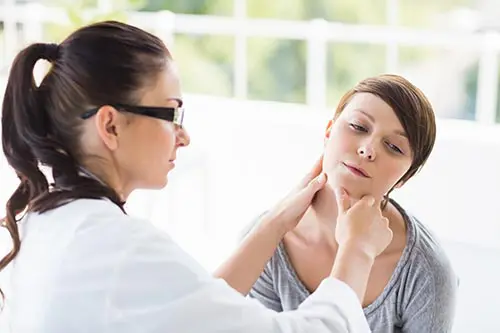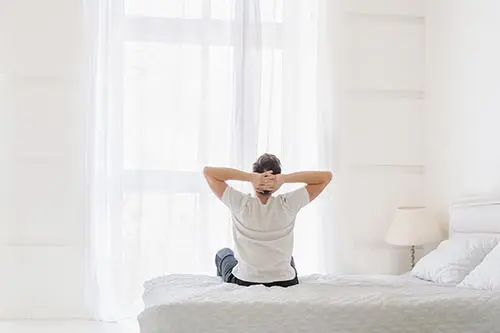What Happens in Rehab for Drug and Alcohol Addiction?
Rehab facilities are often the first step to getting clean or sober. This is accomplished by providing a combination of medical and psychological care, skills development, and isolation from drugs and drug use. Treatment centers can provide a gateway to allow drug addicts to find themselves so that they can learn how to stay clean.
However, choosing to attend rehab is a big step. If you or a loved one is suffering from drug or alcohol addiction, you are probably wondering what happens in rehab. Specifically, you might want to know how it works and what should you expect.
While every rehabilitation center is different and you will receive different care depending on the program and therapy you choose, most follow a similar treatment structure.
What Happens in Rehab Before Treatment
In most cases, you will follow a specific intake structure design. This is to give your counselor, therapist, and doctor the information they need to treat you appropriately.

Initial Consultation
During your initial consultation, your therapist, case worker, or representative will discuss your options, answer your questions, and help you with intake or preparatory planning. Here, you will learn about your possibilities and what your treatment will likely include. If you have a case worker, he or she will help you to set up the consultation.

Psychological Assessment
A quality rehabilitation center will perform a full psychological assessment before beginning your treatment. Here, an addiction psychiatrist will assess you to determine your mental state, whether you have a comorbid disorder such as anxiety, depression, bipolar disorder, etc., so that the clinic can work to provide you with a better treatment plan.

Physical Assessment
A physician will work with you to determine the level of your addiction, any health problems that could affect your recovery or which may require treatment for you to be healthy. This will include a Clinical Institute Withdrawal Assessment to determine your level of addiction and the potential severity of your withdrawal.

Custom Treatment Plan
Your physician and psychologist will work together to create a custom treatment plan that meets your individual needs. This will include detox, a therapy schedule that meets your needs, a psychological reevaluation after detox, nutrition and physical coaching, complementary treatment, and aftercare.
What to Expect in Rehab
Step 1: Detox
During detox, you will receive medical care to help you safely withdraw from your substance. However, a detox program will vary significantly depending on whether you choose an inpatient residential program or an intensive outpatient program.
Pharmacotherapy
Pharmacotherapy and medication management are offered in almost all rehabilitation programs. Here, your physician will administer medication to target specific substance use disorders, to prevent withdrawal symptoms and even to block the effects of a substance should you take it. Detox medication such as buprenorphine (Subutex), Disulfiram (Antabuse), Naltrexone (Revia), benzodiazepines (diazepam, chlordiazepoxide), anticonvulsants (Depakote, Tegretol), anti nausea medication, and antidepressants are used to treat patients detoxing from substances.
Inpatient Residential
In inpatient residential care, you are given full medical attention with access to trained personnel, who will monitor your vitals, withdrawal symptoms, and administer medication such as methadone or Suboxone to help manage your withdrawal symptoms. Inpatient detox is typically held in a medical facility or in the clinic’s in-house detox center. This detox lasts up to about 14 days to ensure that drugs or alcohol are fully out of your system.
Outpatient
Intensive outpatient programs (IOP) are designed to help you through detox with minimal supervision, meaning that they are only suitable for patients with mild to moderate withdrawal symptoms. Here, you typically visit a physician for 15-20 minute checkups once per day and detox typically lasts about 4-7 days. In most cases, your initial physical assessment will include a Clinical Institute Withdrawal Assessment, which will help your physician or counselor to determine if you qualify for ambulatory detox or if you must be referred to inpatient care to withdraw safely.
Step 2: Early Abstinence
Early abstinence is defined as the first period of rehabilitation, typically beginning with detox. Here, your goal is almost entirely focused on moving past substance use and harmful behavior.
This is often considered to be the most difficult period of recovery. That’s because you must overcome the strongest cravings and you’ll experience withdrawal symptoms. After that, you begin to learn coping skills that will help you to remain clean or sober. After detox, you will begin to work with a therapist or trained addiction counselor. This is the person who will help you to begin to overcome cravings and triggers so that you can learn the tools to remain clean or sober after you leave.
Early abstinence typically involves moving through detox, beginning to learn new life skills, and learning to see your addiction in context as something that is treatable.
- Understanding the effects of drugs and alcohol on the brain and body
- Learning to see substance use disorder in context with other health and behavioral problems
- Understanding the process of withdrawal
- Learning strategies for fighting and ignoring cravings and triggers
- Identifying high-risk situations or triggers for substance abuse
- Understanding cravings
- Coping with cravings and triggers
- Understanding abstinence
- Understanding how prescription and over-the-counter medication affects your sobriety
- Understanding and using support and mutual-help groups such as 12-step
- Toxicology screening to ensure that you are not using
Step 3: Maintaining Abstinence
Maintaining abstinence programs are typically begun after you have been abstinent for a period of 30-90 days, and include long-term abstinence treatment, group therapy, aftercare, and ongoing recovery.
Your maintaining abstinence stage will typically include skills development, coping skills, stress management, anger management, and relaxation. You’ll also learn self-efficiency, nutrition, and exercise. You will find all sorts of tools that you can use to build a healthy lifestyle.
In addition to continuing therapy you can expect to learn:
- Relapse planning
- Coping skills
- Stress management skills
- Advanced handling triggers
- Responding to slips and substance use
- Structuring your time
- Handling negative emotions
- Living with enablers
- Managing a family dynamic
- Rebuilding relationships
- Understanding healthy vs. Unhealthy relationships
- Daily living skills (money management, housing, legal assistance, etc.)
- Spirituality
- Parenting (where applicable)
- Stress management and life balance
- Nutrition
- Fitness and health
Step 4: Discharge
Your rehab program will discharge you either after a certain number of days or after you have been deemed to be ready to remain clean or sober on your own.
Discharge is typically 30-90 days after intake. However, it may extend as long as 18 months after intake. This is when you leave rehab completely. You might move into an aftercare program or sober house. At this point, you will seek out a support group and take up the responsibility of maintaining your substance-free life on your own.
Step 5: Aftercare
Most rehabilitation centers offer some form of aftercare, which will help you to ease back into your life, will help you to find and move into self-help groups such as 12-step groups, and will help you to adjust to your normal life and responsibilities.
An aftercare plan is designed around your life to help you decide what to do in specific situations. For example, you may have specific strategies, people to contact, people to avoid, things to do or take care of, and specific strategies for coping in case of triggers.
Sober Living
Sober living or sober home is a bridge between rehab and regular life. This is a place where you can live in a group home under supervised care. This can help you to adjust to living outside of rehab while having someone available to help monitor you, provide accountability, and ensure that you do not start using again.
Alumni Program
An alumni program allows you to stay in touch with rehabilitation and other recovering addicts after discharge from a residential treatment program. Alumni programs help you to connect with others who have recovered, work to offer continued therapy, and provide encouragement and accountability through progress checks and follow ups.
Ongoing Recovery
Ongoing recovery can include phone support, therapy, network assistance, and other aid depending on the rehabilitation program. In most cases, ongoing recovery includes support for 1 year or longer, allowing you to call to get help, to talk through cravings, and to see a therapist or addiction consultant as needed.
Group Therapy
Most aftercare will include an introduction to a group therapy that meets your personal goals and needs. This is important because it allows you to move away from your rehabilitation clinic and back into your life, without dropping the support and accountability that comes with it. Group meetings can help you to stay clean or sober by providing motivation, accountability, and like-minded friends who will listen and understand or help you with cravings. There are many types of group therapy, and your rehabilitation center may offer their own, or they may connect you with a compatible program in your area.
How Does Rehab Work
A rehabilitation program works by giving you a structured plan that will help you to detox, undergo behavioral therapy, and learn skills to help you to stay clean or sober. Depending on the facility, this may include one or more of a variety of common treatment models and therapies.
CBT
Cognitive Behavioral Therapy is a comprehensive treatment strategy designed to tackle both cognitive and behavioral problems in addiction. The treatment is divided into two stages: functional analysis and skills training. These allow you to first determine which areas of behavior and thinking cause problems and then work to fix them. CBT is evidence based and one of the most popular addiction therapies, because it is proven to reduce both short and long-term substance use. CBT includes individual therapy, group therapy, family therapy, and skills training.
DBT
Dialectical Behavior Therapy is a cognitive behavioral treatment designed to help patients recognize dialectical behavior, extremes of emotions, and addiction. DBT is unique in that it creates individual prioritization schedules for the patient, to attempt to tackle the most pressing issues first. DBT typically helps you deal with life threatening behavior, resistance to therapy, to improve your quality of life, and then to build skills and coping mechanisms, in that order. DBT is comparable to CBT in effectiveness, and includes individual therapy, coaching, group therapy, and phone coaching.
Group Therapy
Group therapy is an intrinsic element of nearly any rehabilitation program. Here, you will receive skills training, go over emotional and behavioral problems, discuss problems as a group, and work together to overcome obstacles. Group therapy allows you to be challenged and inspired by your peers who have experiences like your own, which can be crucial in helping you to overcome barriers to your recovery.
12-Step Model
Many rehabilitation centers work using a 12-step model. Because 74% of all treatment centers offer some form of the 12-step model, it is highly likely to be available in any treatment center you choose. The premise of the 12-step model is that your group supports each other on your way towards getting clean, while learning skills, accepting a higher power, and building tools to have a happy and sober life.
Skills Development
Every rehab will include some form of skills development which will often include nutrition, stress management, anger management, and life skills. These will vary depending on the treatment center.
Complementary Therapies
Most rehabilitation centers offer a variety of complementary or alternative therapies to supplement primary therapy. These can be evidence-based but may not be, and may be elective or mandatory with the program depending on your treatment plan or your personal preference.
Nutrition Therapy
Nutrition therapy is a mandatory element of many rehabilitation programs, because it is a required element of complete rehabilitation. In nutrition therapy, you will receive a healthy diet, learn to care for yourself and eat so that your nutritional needs are met after leaving rehab, and possibly given intensive supplements to correct nutrition deficits while in therapy.
Exercise Therapy
Exercise is an increasingly mandatory element of rehabilitation because it helps your brain to recover so that you can be healthy. Light to moderate exercise has been shown to boost the mood, reduce cravings, and give you more energy, so that you feel better and are more prepared for the day.
Mindfulness
Mindfulness is a science-based complementary treatment that can help you to reduce stress, manage your emotions, manage cravings, and improve behavior patterns to reduce substance use or abuse. While not effective on its own, studies show that continued use of mindfulness greatly reduces the chances of relapse.
Acupuncture
Acupuncture is typically offered to help calm the body, stimulate blood flow, and stimulate nerves. In some cases, acupuncture may be part of a spiritual treatment as well, but not always. Acupuncture has been shown to stimulate neurotransmitter production, which can help relaxation and boosting the mood.
Music & Art Therapy
Art and music therapy works to give patients an outlet where they can relax, learn new skills, and focus on something outside of themselves. Like equine therapy, music and art therapy works to build self reliance, responsibility, habits, and impulse control, which can help you in other areas of recovery.
What’s Important in Rehab
Choosing a good rehab center means selecting a facility that can offer the kind of care and treatment that will help you to get clean or sober. It should also support you as you work to improve yourself and offer follow-up care to help you adjust to living outside of rehab. The center you choose, what they offer, and how they approach treatment affects what happens in rehab. It’s crucial that you choose a clinic that can offer everything you need to recover.
Your Case Manager
Your case manager or counselor will control your experience at rehab. It is crucial that you be able to work with a quality and qualified case manager who cares about you and your well being.
Staff Qualifications
A good rehab center will provide qualified and trained staff, licensed nurses, and licensed therapists or psychologists. Rehabilitation facilities vary a great deal in quality, with some offering little more than glorified hotel service so it is important that you seek out a facility with a fully qualified staff who can offer you the in depth medical and psychological care that you need.
Therapist
Your therapist or counselor should be fully qualified, but should also be able to build a relationship with you. Treating patients with addiction often means looking past the addiction to find the roots of that addiction, including emotional and behavioral problems, and your therapist must be willing to do the work to achieve that. This necessitates treating you as a person with problems not as an addict, so that the therapist can treat you and not just your addiction.
Structured Plans for Recovery
A good rehab center should offer structured plans for therapy, treatment, activities, and group activities. This is so you know what to do and why. Planning your recovery ensures that every aspect of your recovery is accounted for. This includes nutrition, exercise, and behavioral therapy. While structured plans are important, your facility should also work to update treatment plans based on new information. It’s important you always receive the most relevant treatment.
Activities
Inpatient rehab can feel isolating. This is particularly true if you are prevented from seeking entertainment outside of the facility. It is important that your facility provides a variety of activities and entertainment options. While basic rehab centers will provide table games like ping pong, this can become boring and demotivating over a period of 30-90 days. A quality rehab facility will offer a wide variety of entertainment such as a swimming pool, ball-based sports like tennis or baseball, hiking, or horseback riding. Water sports or even surfing may be available if you’re attending a place near an ocean. These activities become available upon approval from your as your medical plan allows.
A Typical Day in Rehab
If you’re wondering what happens in rehab, learning about a typical day in a treatment center will give you an excellent idea of what to expect and how it works. Your day in rehab will change dramatically depending on whether you choose inpatient or outpatient care.
Inpatient Residential
Inpatient care involves a very structured and organized day. You’ll have a plan for your activities, progress, and treatment throughout the day. While much of the day is planned, it is set at a pace that reduces stress. This allows you time to relax, interact with other patients, and take part in voluntary activities or entertainment. While specific amenities and opportunities will vary depending on the treatment center, you can expect a typical day in rehab to follow this pattern:

Breakfast
You will likely be woken early in the morning, at the same time every day, to enjoy a healthy breakfast. Meals may be taken in your room, but will more likely be held in a cafeteria or dining room style communal room.

Morning Meditation or Yoga
Many treatment programs introduce a morning meditation, mindfulness, or yoga class, before or shortly after breakfast, to help you relax and begin the day.

Own Time
You may get a few hours of time to yourself after a group session, which you can use to relax, read, meditate, or enjoy the facility’s amenities.

Lunch
You will be served a healthy lunch in a community setting.

Group Session
You will likely attend a morning group therapy session shortly after breakfast. This session may follow the 12-step program or may follow CBT or DBT style group therapy. These daily sessions will change in topic, but will often have a theme, will allow participants to discuss their personal experiences, and will focus on building skills, discussing problems, and learning coping skills.

Individual Therapy
You will meet with your counselor or therapist to receive therapy or treatment. This is typically CBT or DBT, but may be another style depending on the facility. Here, you will work closely with your therapist to identify triggers, reasons behind substance use, behavioral responses, emotional responses, and other barriers to you getting clean.

Counseling and Classes
Depending on your personal problems, you may receive sessions to help you handle anger, stress, grief, or other emotions. These classes often revolve around your personal issues, but may be group or one-on-one depending on the intensity of your personal issues.
You will also receive nutrition classes, exercise classes, and any other programs that your personal treatment program suggests for your recovery. These may be held daily, or spread out throughout the week depending on your treatment center.

Family Therapy
Depending on the day of the week and the rehabilitation center, you may receive family therapy with friends. Here, you will resolve issues, address emotions and hurts with family, and listen to them doing the same. Family therapy is often crucial to rebuilding relationships so that you can function as part of a family unit after being discharged.

Group Therapy
After some time off, you will likely attend another group therapy session with another theme.

Entertainment
You will likely be free for several hours to relax, entertain yourself, and visit the facility’s amenities. Meditation, mindfulness, yoga, and journaling are all encouraged to help you recover.

Meeting
You will attend a meeting with other patients, where you will be given a discussion theme, allowed to talk, and discuss issues. These meetings may follow a 12-step format.

Bed
Most rehabilitation programs follow the adage of “early to bed and early to rise”. You will likely be encouraged to go to bed at a reasonable hour to build healthy habits.

Dinner
You will be served a healthy dinner.
Intensive Outpatient Program
An intensive outpatient program is significantly more relaxed and less structured than an inpatient program. This is because it’s designed to allow you to attend to work and other responsibilities throughout the program.
Here’s how it works. You live in your own home or a sober living home, set your own hours, go to work, take care of family, or otherwise handle responsibilities. In most intensive programs, you can expect to attend therapy and group sessions for 3-6 hours per day. During this time, you’ll experience therapy, skills training, group therapy, and sometimes complementary therapies.
Educational sessions are typically 1-2 hours each, family therapy is about the same, and CBT or DBT is typically 1.5-3 hours in length.
Morning Sessions
In some cases, you may be able to attend morning therapy sessions.
Evening Sessions
Evening sessions are typically held after 6 PM, sometimes after 8PM, allowing you to leave your workplace and drive to rehab.
Decreasing Intensity
Many intensive outpatient programs begin with daily meetings of 3-6 hours, but decrease in intensity after the first 30-90 days.
Understanding what happens in rehab, how it works, and what to expect is important. It can help you to make the best decision, choose a treatment model that works for you, and even help you to come to terms with the decision to go. Hopefully this information is enough to guide you towards a decision.
If you or a loved one is suffering from a substance use disorder, it is crucial that you get help. A rehabilitation center can help you to detox and build the tools you need to stay clean or sober so that you get your life back.
Beginnings Treatment Centers is located in beautiful and sunny Southern California in Orange County, which has one of the strongest and most active recovery communities in the United States. If you or your loved one is struggling with addiction, contact us today and speak with one of our experienced and professional intake advisors, we’re here to help.


